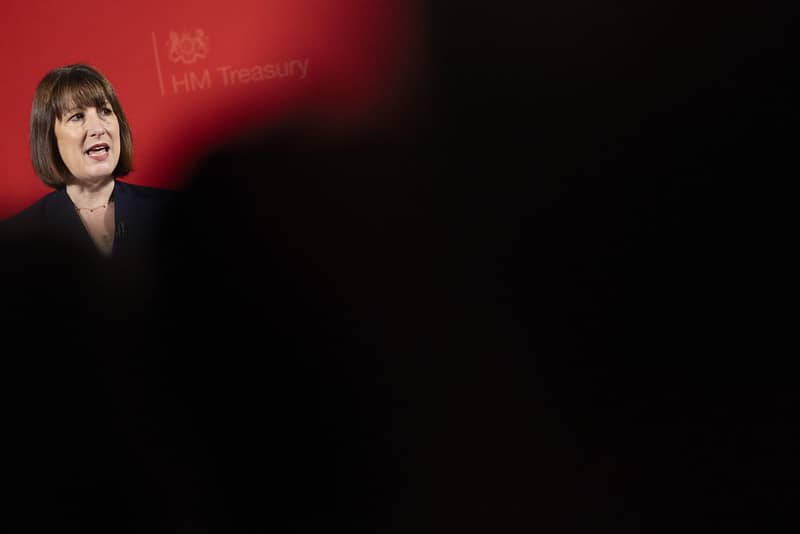
File image of Chancellor Rachel Reeves. Image: Kirsty O'Connor / HM Treasury.
The British Pound might find the Bank of England keeps interest rates elevated for longer as the Government agrees to a round of inflation-busting pay increases.
The Bank of England could still cut interest rates on August 01, but it is increasingly clear it will have to show caution in the subsequent months as the new government commits to inflation-busting pay increases for public sector workers.
Rachel Reeves is preparing to hand millions of public sector workers an above-inflation pay rise and attempt to blame the Conservatives for any tax rises needed to fund it.
This is after independent pay review bodies covering half a million teachers and more than 1.3 million NHS staff recommended a 5.5% increase, significantly more than the 3% budgeted for.
"Reeves may be hoping an MPC interest rate cut before October reduces government-bond yields and debt interest costs. But the more she boosts public spending, the less room the MPC will have to cut interest rates," says Robert Wood, Chief UK Economist at Pantheon Macroeconomics.
The Bank of England keeps a close eye on pay settlements as they can boost demand in the economy and contribute to higher inflation levels. If it thinks pay will remain robust, it might be cautious in its approach to cutting interest rates.
Ashley Web, UK Economist at Capital Economics, says restricting the 5.5% pay rise to NHS staff and teachers will be relatively inconsequential for monetary policy.
"But if the government chooses to extend this pay rise to all public sector workers, it would probably support wage growth and domestic inflation by a bit more than we expect. That may mean interest rates are cut slower and/or by less than we anticipate," she says.
The Times reports pay awards for the rest of the six million public sector workers, including doctors, police, members of the armed forces and civil servants, are understood to be similar.
"How significant is this? BoE May MPR projections anticipated total economy average earnings growth easing from 5.25% in 2024 to 2.25% for 2025. Even if public sector workers are only 18% of total employment, pay increases of 5.5% look difficult to square with that 2025 forecast absent a much deeper downward correction in the private sector," says Sam Hill, Head of Market Insights at Lloyds Bank.
Hill says is still not clear that the necessary downward shift in private pay is happening. "Private sector regular pay growth may have eased from 5.9% 3m/y to 5.6% 3m/y last week, but other survey evidence casts doubt on how confident we should be about the downward trajectory," he explains.
"Suspense over the timing of the first BoE rate cut remains high after above-forecast inflation data for June and political pressure grows on Chancellor Reeves to accept a 5.5% hike in public sector pay to keep pace with private sector pay," says Kenneth Broux, an analyst at Société Générale.
Pound Sterling is the best-performing major currency of 2024 as it benefits from expectations that UK interest rates will remain elevated to those elsewhere, offering international investors superior returns. The flow of money from low to high interest rate areas is potent and is the primary driver of FX value in times of low volatility.
However, accepting pay recommendations across the board would require Reeves to find about £8BN. This will need to come from within existing spending plans, which means cuts elsewhere or from further tax rises which could ultimately restrict the economy's potential.
The Pound to Euro exchange rate (1.1870) has retreated from recent highs as expectations for an August 01 rate cut have ticked higher again over the coming days. Money markets show the odds of such a move are at 50-50.
The Pound to Dollar exchange rate (1.2929) has also eased from recent highs amidst a recovery in rate cut expectations, however, global investor sentiment and U.S. politics are also an important driver of this pair.
